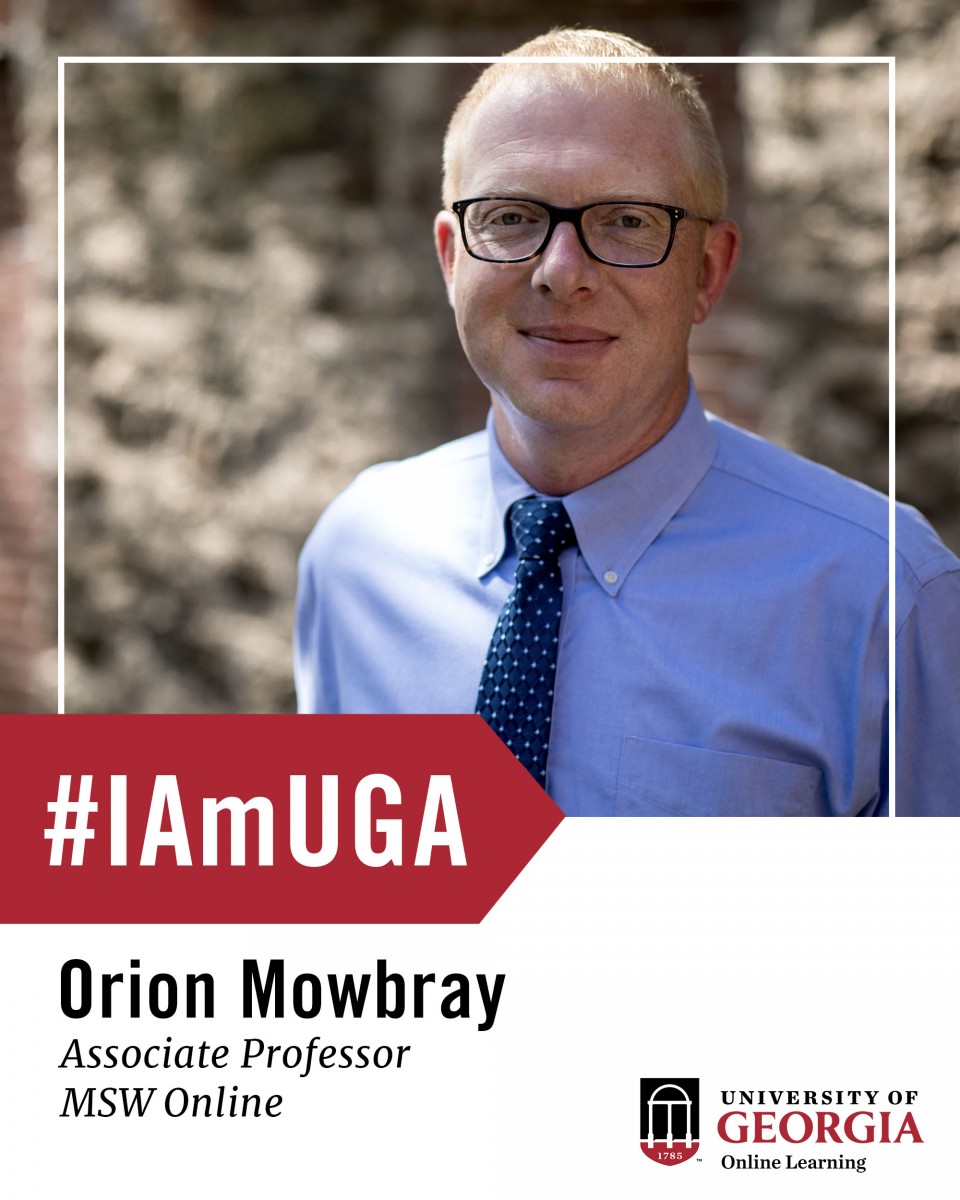MSW Online faculty focuses on access to mental health
Since joining the University of Georgia in 2013, Orion Mowbray, faculty for online Master’s of Social Work program, focused on promoting access to mental health services and the outcomes of mental health services utilization.

Mowbray has developed research and training funding in the National Institutes of Health, the Bureau of Justice Assistance the Health Resources and Services Administration and SAMHSA. He has authored and co-authored many peer-reviewed articles in multiple substance use, mental health, and social work journals.
His current research interests examine how mental health is addressed in the criminal justice system. This includes expanding accountability court programs for persons with mental health problems, providing training and data-driven information jails on screening and detection of mental health problems, and providing adequate mental health services to persons after they are released from jail or prison.
These projects are in partnership with the State of Georgia and several federal funders which aim to directly improve the lives of persons with mental health problems who are in the criminal justice system.
Mowbray believes teaching is the means for social change. He hopes his students gain a deeper understanding of the world they live in, including where they fit into it.
“I want students to achieve this understanding because I believe that through education of broader world views, empathy, compassion, and hope can be cultivated, which can lead to helpful social change through local, state and federal action and advocacy,” Mowbray says.
Along with College of Education professor Bernadette Heckman, Mowbray secured a $1.4 million grant from the U.S. Health Resources and Services Administration to train about 100 graduate students to help address the mental and behavioral health services shortage.
The graduate students will serve in treatment facilities across District 10. The grant will also enable the students to receive advanced training in everything from screening for substance use problems to medication-assisted treatment for opioid addiction.
“We can teach students all they want in the classroom,” Mowbray said, “But that direct experience, that experiential learning, is critical.”
